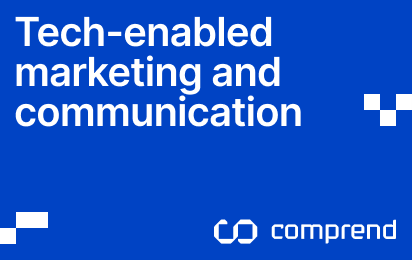
M&S CHRISTMAS AD INVOKES FROSTY DEBATE
Criticisms over brands ‘picking a side’ or staying silent on the Israel-Hamas war leave little room for communications blunders.
When Russia invaded Ukraine in February last year, the responses of private companies were closely monitored. Many, such as Apple, Nike and IKEA, were quick to pause or cancel their activities and relationships with Russia. Apple released a statement saying that it was “deeply concerned” by the event and ceased selling its products in the region. Spotify closed its Russian offices indefinitely, citing the “safety of our employees” as its main concern.
Today, following Hamas’s atrocities in Israel and the state’s retaliation in the Gaza Strip, companies are again weighing up how to respond. Some business leaders have opted to make both internal and external statements of sympathy, while others have stayed silent. Retail brand Marks & Spencer (M&S) had been in the latter camp until the release of its Christmas advert was interpreted as expressing anti-Palestine sentiment.
In a scene now removed from the TV advert, discarded Christmas hats lay draped over a roaring fireplace. Arranged in a row of red, silver and green, the paper crowns bear a resemblance to the Palestinian flag which has adorned the masts and shoulders of protestors across London this week. The advert is wrapped up with the caption: “This Christmas, do what you love … like saying no to paper hats” and its seasonal slogan #LoveThisNotThatmas.
The accusations M&S has since faced have ranged from inattentiveness to deliberate provocation. Communications expert Paul Sutton describes the controversy as “bloody ridiculous!” He continues: “Could they have noticed it and not posted? Possibly. But there was no intent to upset anyone, and it strikes me that no-one can post anything now without getting hammered for it.
“Brands cannot be expected to be on top of absolutely every angle of everything they post. It was an innocent mistake - and not even that, a coincidence - and nothing more than that.”
Paul MacKenzie-Cummins, MCIPR, founder of Clearly PR, says: “Yes, the Palestinian flag does include these three colours (if we accept that silver can be considered a substitute for white). But so do the flags of Italy, Hungary, Ireland, Mexico, and Bulgaria. And Iran, too - let’s not go there.
“Also overlooked is the fact that the advert was actually created in August, two months before the atrocities we were all horrified by just a few short weeks ago.”
M&S has since released a statement apologising for causing “unintentional hurt”, claiming the scene was designed to “playfully show that some people just don’t enjoy wearing paper Christmas hats”. MacKenzie-Cummins believes this response was appropriate and sufficient, adding: “Although the backlash and subsequent calls for a boycott of M&S were ridiculous, this whole episode should serve as a warning for all businesses and brands: when it comes to communications, stop before you go and think before re-thinking and thinking again.”
PR strategist Mary Beth West, APR, FPRCA, who published a PR code of ethics report alongside the Institute of Business Ethics in September, says: "Taking M&S at its word about this situation, it is a case of both coincidence and bad timing. This is a reminder for all brands: stay vigilant about current world events.
"But with that said, there always will be certain audiences keen to demonise. I think far more stakeholders see those actions for what they are, even if from within a silent majority.”
Many, however, believe the mishap is indicative of a more deeply rooted problem. Corporate communications and PR consultant, Elizabeth Holloway, warns of a “worrying lack of awareness”, adding: “A company of M&S' size has huge teams that would have been involved in the campaign, so it indicates either a lack of diversity of thought or a culture of fear that nobody was able to spot the potential for an issue.
"When you’ve got a profile as big as M&S and when emotions are as high as they are regarding the tragic situation in Palestine, then it’s simply not worth taking the risk in hoping something will blow over,” she continues. “Letting the post remain up for so long, getting more negativity, increased the risk of it going viral across other platforms.
“The internet has a long memory, and a day is a long time in social media.”


